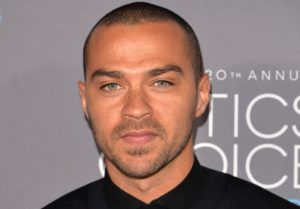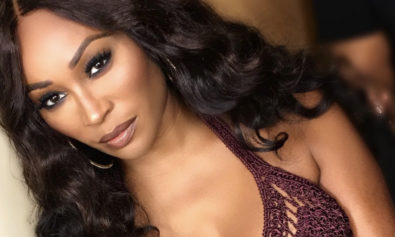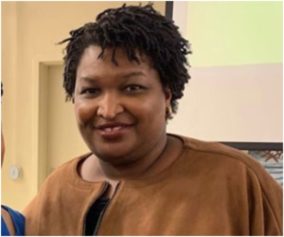
Jesse Williams (Facebook)
Actor and activist Jesse Williams is discussing the circumstances surrounding his incredible BET Awards speech for the first time and detailing his future goals. In 2016, the star of ABC’s “Grey’s Anatomy” stepped outside of acting to push the plight of Black oppression to the forefront. Now, Williams is sharing his thoughts on the reception of his poignant humanitarian award acceptance speech.
The star told NPR Saturday, Dec. 31, that he had been working in Atlanta on a remake of the film “Jacob’s Ladder” before taking the day off to fly to Los Angeles for the show June 26.
“I was actually living in isolation for several months,” Williams said. “So, I was really distracted with other things and focused on my jobs, but in preparation, on the flight, I scribbled some thoughts down on my iPhone to accept the award but also to take advantage of the opportunity for us to address some of these issues that brought us here.”
His speech focused on issues within the Black community, including police brutality. Williams largely condemned the way Black Americans have been treated and called on Black entertainers to rally behind the causes of our people.
Since Williams was not earning an award for his entertainment career but “for work being done in the space of human rights and civil rights and general public consciousness,” he said he “felt the energy in the room and kind of surfed it.”
Although he received a standing ovation from the audience, many white viewers slammed Williams’ words. However, the actor shut down social media for 10 days following the speech and traveled back to Atlanta to complete his film.
“I turned down every offer to be covered in this and to be featured in this,” he said. “It wasn’t a media play for me. I meant what I said and I stand by what I said, and months later, people still haven’t properly been able to unpack what I said.
“So I avoided the hype around it, and when I did resurface, people sent me so-called critiques, so-called attacks,” he continued. “And I watched them eagerly, excited — I love constructive criticism, and let’s have this conversation. And they were all vapid, empty, red-faced shouting. There was no substance to it. You know all those critiques that got a lot of buzz and petitions, there’s no information in the sentences that they scribble. And they just want you to shut up and keep dying. Shut up and keep taking it; you’re inconveniencing me by bleeding to death. So I wish that I saw something substantive, and I would always welcome that conversation. I don’t know everything, I’m a student.”
Williams noted he did not wish to explain what his speech meant but rather, he felt it was important for people to study it for themselves.
“I wanted people to spend some time trying to figure — like a novel or something — what does it mean to you? What do those words mean to you?” he said. “I think when we talk about police in particular — the word ‘police,’ the idea, the institution of militarized police roaming the streets, collecting people — mean something different to very different people.”
For anyone who believes celebrities should only entertain rather than stepping into the activism realm, Williams put his foot down.
“The bottom line: This thing, this marketing con called ‘whiteness’ that convinces so many people that it relies on having your boot on somebody else’s neck, perpetually having [an] advantage over somebody else — there’s no form of protest that has been OK with them,” he said. “We’ll gladly listen if you give us a list of what we’re able to do, how we’re able to behave, what we’re able to do with our bodies, minds and hearts. Just give us a list of the infractions that can be responded to with spontaneous public murder.”
Since the speech, Williams has continued his crusade for Black lives. Along with continuing to support the Black Lives Matter movement, for which he produced a documentary, he also got involved in two mobile apps. One, called Scholly, focuses on matching underserved students with scholarships they’re qualified for. The other app is one he co-founded called Ebroji, which Williams describes as a “cultural language keyboard.”
The activist also told the radio station he feels “certain that I’m making a difference” through his endeavors.
Looking forward, Williams hopes 2017 will give him the chance to continue to share his work by “looking back into the archives of terrific storytelling and collaborating with great people to make things that can also supplement us having real-deal political discourse on its face.”
“You can be really subversive and impactful,” he said. “So I’m going to be really focusing and spending a little bit more attention on that as well as [being] politically active.”


